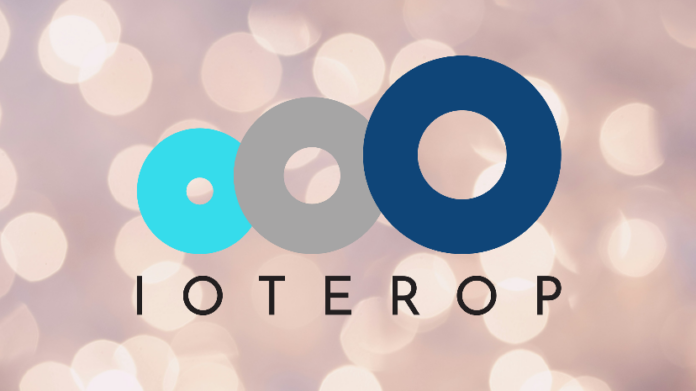For never was a story of more woe than this; except it happens too often in the IoT space. Montpellier-based IoTerop, a pioneer of the Lightweight M2M (LwM2M) standard, is seeking a buyer after it was placed into receivership by the commercial court in its home town. The firm blamed an all-too familiar storm of over-hyped technology, slow infrastructure rollout, global pandemic and logistics issues, and fundraising and investor pressure. But, following a major cull of its sales and marketing teams earlier this year, the firm said it is hopeful a buyer will step in and rescue its business, technology, and customer contracts.
IoTerop offers a software development kit, called IOWA, to integrate remote management and security features into IoT devices and a cloud-based solution, called ALASKA, to streamline integration and lifecycle management of them. It is a key player in the LwM2M space, developing the open LwM2M protocol from the Open Mobile Alliance (OMA) to address the needs of low-power cellular IoT devices with very little compute power. LWM2M is used widely by mobile operators. IoTerop is a member of the OMA’s SpecWorks Board.
The firm serves IoT vendors in the supply sundry low-power wide-area (LPWA) IoT monitoring and tracking solutions in the smart utilities, smart lighting, smart logistics, and smart cities markets. It has supply contracts with the likes of Itron, EDMI, Elvaco, EDF, Orange, Hager, and Telit. The firm recorded around €700,000 in revenues in 2023. It took €1.6 million in “pure bank debt” into the receivership process. “Bidders can decide not to carry over the existing debt,” it said.
It retains 16 staff, specialising in embedded systems, cloud computing, cybersecurity, and telecoms – to “preserve the continuation of our software innovations, maintenance, and customer deployments,” Hatem Oueslati, chief executive and co-founder at the firm, told RCR Wireless. A statement said: “The company is urgently seeking a buyer capable of continuing its expertise and supporting its innovations in the IoT sector, thus ensuring the continuity of its services and preserving its valuable workforce.” Interested buyers have until the end of the month (midday, October 31) to submit offers.
Oueslati said: “You know, we’ve put so much energy, investment, and passion to create [this business] over the last eight years… Our solutions help to tackle crucial environmental and societal challenges – to reduce our energy footprint and preserve the natural resources of our planet. These are real-world and important matters. Together with the entire team, we are looking for a new owner who shares our passion for innovation and can help us seize the immense potential that this market offers in the coming years… I’m very proud of the talents we have and their ability to deliver such break-through IoT solutions.”
Asked, simply, what has gone wrong for IoTerop, Oueslati responded: “It’s a combination of several factors: bad luck and timing, network infrastructure rollouts, cash availability and fundraising.” He explained…
“We did our first round of fundraising in October 2019. By March 2020, Covid-19 had shut down innovation projects for most of our customers. During the next 18 months, customers suffered significant delays releasing new products because of the supply-chain crisis with electronic components. So our business was impacted with significant delays – which we could hardly have anticipated in 2019. In certain cases, it took three-to-four years for products based on our software solutions to actually reach the market. Which is totally abnormal.
“As well, for massive IoT deployments, you need cost-effective and scalable network infrastructure on which to grow. Mobile operators in many geographies have taken a lot of time to actually put in place and deploy their NB-IoT and LTE-M networks commercially – with decent coverage and decent pricing, as well. It was only in 2022/23 that we saw these deployments reach any kind of maturity. Advanced IoT services – such as remote lifecycle management, remote configuration of security keys, remote software/firmware updates – all rely on reliable, powerful, and cost-effective network infrastructure.
“Besides, there are fundraising issues for deep-tech startups, generally. Doing business in the metering and tracking markets takes a lot of time. Upgrade cycles are very long. Despite the stickiness of our technologies and services, and signatures from big customers with high volume potential, it was very hard to show immediate and significant revenue growth to investors. We did raise a bridge (loan) from historic investors in 2022 in preparation for a Series A round, expected at the end of 2023. But capital raising was cut by almost 50 percent in 2023, and we failed to close the round – thus leaving us in the situation we are today.”
Asked as well about issues with adoption of LwM2M, Oueslati responded: “New technology adoption always takes time. Obviously, LwM2M has taken more time than we expected but it’s also pretty understandable why when IoT growth in general is way below what analysts predicted originally – when they said there would be 50 billion devices in the market by 2025. Because 2025 is tomorrow. So where are they?”
He went on: “LwM2M and device management in general are dependent on the ‘massification’ of IoT deployments. If you have 100 devices in the field, you can probably cope with configuring or reconfiguring them manually. If you have 100,000 devices, you can’t. LwM2M is the best technology to convey advanced services in IoT today. We see significant increases in its adoption in the water metering market, for example. And its adoption curve in many other markets will grow significantly in the next few years.
He added: “We are at an inflection point today. But yes, I think we were too early in the market.”
The result of the bidding process for IoTerop will be decided by the Commercial Court of Montpellier after October 31.

